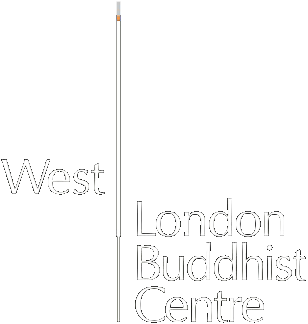What if the Buddha was Your Life Coach?
This territory of ethics, meditation and wisdom is exactly what we will be covering in the West London Buddhist Centre’s next Introduction to Buddhism course – A Taste of Freedom. Over the six weeks we will place ourselves in the Buddha’s capable hands as friendly life-coach, learning the basics of his approach to freedom, and testing it in the context of our own lives. Ratnadeva imagines how this might look…
A Modern Life-Coach
I sometimes imagine the Buddha as a modern life-coach. I’ve yet to avail myself of the services of a professional life-coach, but I imagine that what they do is assist us in clarifying what our values are, how those values express themselves as goals and what resources we have available to us in order to achieve those goals.
After some mutual introductions, I imagine that the Buddha would start our first session by pointing out what is our greatest resource, whatever our values or goals might be. In the Dhammapada, the collection of the basic pithy teachings of the Buddha, he tells us that our mind is our greatest asset. Our minds are the source of our experience. They determine the quality of our actions and, ultimately, our happiness.
The Problem and the Goal
In the first teaching that he gave after his Awakening, the Buddha formulated that Enlightenment experience in terms of the Four Noble Truths. One reading of this teaching is that the origin of the problem of suffering is in the mind and therefore the solution is also to be found in the mind. Suffering is not inflicted on us by external circumstances, but by our mind-made response to those circumstances. If we resist our experience we will suffer. If we accept and work with our experience, we are on the path to freedom from suffering. To change our experience of the world we need to change our minds.
Training Tip 1: Love and Do No Harm
The Buddha might add some details about drinking eight glasses of water a day, warming-up before vigorous exercise and the virtues of a balanced diet. Then comes the crunch training tip – the key to changing our minds is to understand the mutual relationship between our behaviour and our minds. Behaviour starts in the mind as intention, but then once intentions are acted out, those actions alter the mind. We can tap into a virtuous circle through acting in accordance with how the world really is, thereby generating positive states of mind, leading to further helpful intentions and actions. And so the cycle spirals towards a mind ever more attuned to reality, ever more free.
To be able to put this training tip into action, we would have to glean from the Buddha how to judge whether our intentions and actions are helpful. He might then provide a handout or a text message with five criteria – the five precepts. Knowing that we’re busy people, he’d probably provide a summary of the five precepts; ‘love and do no harm’.
Training Tip 2: Meditate
After a week of working with the precepts we’d have a follow-on coaching session when the Buddha would ask us how we got on. We might arrive a bit elated and a bit exasperated – I achieved this, but fell flat on my face with that. In our first week we would have had a sobering encounter with our own habits. We have faced the fact that we are creatures of habit. The Buddha would encourage us by pointing out that awareness of our habits is the first stage to changing them. In fact, awareness is our biggest ally in the whole task of changing our minds. Awareness is the agent of transformation. And how do we develop awareness? – through mindfulness and meditation. After this coaching session we sign-up for the mindfulness gym – a regular meditation practice.
Training Tip 3: Repeat
By this stage we’re intrigued as to what reality we’re supposed to be aligning with. And the Buddha tells us how it is: impermanent, unsatisfactory, insubstantial, fluid, surprising, open-ended. This we find hard to grasp at first, but as we go deeper in our meditation, extend our mindfulness practice into the nooks and crannies of our day and sharpen our ethical practice, we have a sense of emerging clarity and direction.

